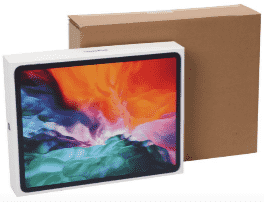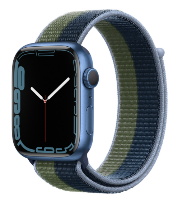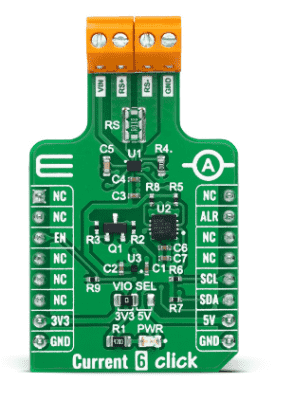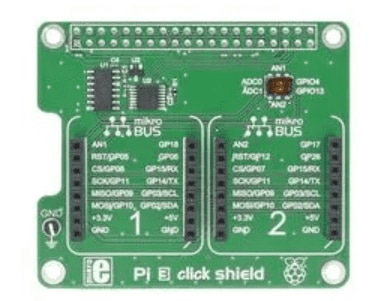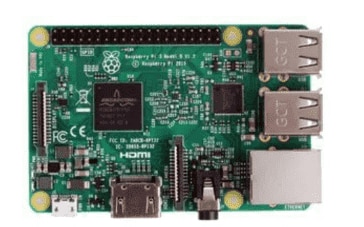The need is growing rapidly for fast and accurate current sensing for overcurrent (fault) protection, current metering, power monitoring, battery management and monitoring, as well as high-power converters. Current sensing is essential for products spanning industrial automation, telecom infrastructure equipment, portable appliances, and battery-operated devices. Current sense amplifiers (CSAs) are designed to perform this important function.
A current sense amplifier (also called a current shunt amplifier) is a purpose-built differential amplifier IC that is designed to sense the voltage developed across a current shunt resistor and output a voltage proportional to the measured current. Today's current sense amplifiers are high-precision, bi-directional devices with digital outputs, fast sampling rates, and very wide input common-mode range.
In this competition, participants will have an opportunity to experiment, test, or build a circuit with the MAX40080 by Maxim Integrated, a high-precision, fast-response, bi-directional digital current-sense amplifier.
How to Enter This Competition
Before we talk about what the participants will receive in the Challenger’s kit as well as the great prizes they are competing for, let's talk about how to enter this competition, the timeline, and some FAQs.
How do you enter the Experimenting with Current Sense Amplifiers competition?
All you need to do is log into the element14 community and click the Join the Competition button. The application entry form will appear. Complete the application form with all required information. Then click submit.
Who is Eligible to Enroll in the Experimenting with Current Sense Amplifiers Competition?
Any element14 member can enroll in the Experimenting with Current Sense Amplifiers competition; however, to receive one of 10 FREE kits, you need to submit an application entry form by the enrollment deadline, March 20, 2022. (If you are not a member, click here to register. Once you go to the registration page, click the green Register button in the upper right corner of your browser. It takes less than a minute.)
What are the milestones of the competition?
| Enrollment Begins: | February 17, 2022 |
| Enrollment Ends: | March 20, 2022 |
| Applicants Selected: | March 25, 2022 |
| Challenge Begins: | April 1, 2022 |
| First Blog Due: | April 16, 2022 |
| Second Blog Due: | May 31, 2022 |
| Challenge Ends: | June 1, 2022 |
| Winners Announced: | June 7, 2022 |
Blogging Requirements: Only 2 Blogs!
In order to successfully finish this competition, you are required to blog twice during the competition period. You can blog more than twice, if you wish. There are due dates for the blogs as described below:
- Write Blog 1: Introduce yourself in the blog and explain what experiments you plan to perform. The due date for publishing the first blog on element14 is April 16, 2022.
- Write Blog 2: Write up the results of your experiments, using images, screen captures, videos, tables, charts, etc. Then tell us what you learned about current sense amplifiers. The due date for publishing the second blog on element14 is May 31, 2022.
Please also tag your blogs with 'Experimenting with Current Sense Amplifiers'.
There will be two big prizes awarded in this competition: a Grand Prize and a Runner Up prize. We also offer a complimentary finisher prize to those who have met the requirements for finishing the competition, but have not been chosen for the Grand and Runner Prizes. (Note: The Grand and Runner Up Prize winners will not receive a finisher prize.)
The Grand Prize will have two options:
| Option A | Option B |
|---|---|
|
Apple iPad Pro 12.9 ($900) |
Apple Smartwatch 7 ($400) |
The Runner Up Prize is::
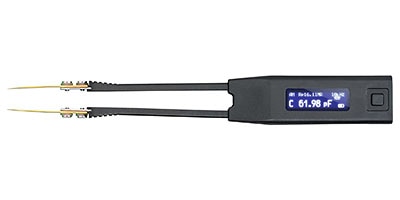
Component Tester, LCR ($398)
The Finisher Prize is:
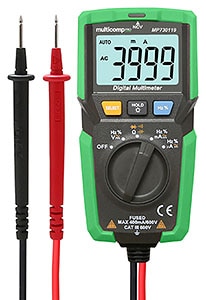
Palm-sized multimeter ($17.23)
Let's Take a Closer Look at the MAX40080 Current Sense Amplifier
The participants will receive a kit that contains the MAX40080 Current Sense Amplifier, which is mounted on a MikroElektronika ClickBoard. Let's take a moment to learn more about it.
|
The MAX40080 is a high-precision, fast-response, bi-directional, current-sense amplifier with digital output and a very wide input common-mode range from -0.1V (ground sensing) to 36V. The device features an ultra-low 5µV input offset voltage and very-low 0.2% gain error. The low input offset voltage is especially important because it allows using a small sense resistor, thus saving power dissipation, but at the same time not compromising the measurement accuracy. It is also capable of measuring the input common-mode voltage up to 36V. |
Block Diagram of the MAX40080 Current-Sense Amplifier |
The MAX40080 includes an analog-to-digital converter with programmable sample rate and 12-bit resolution (13-bit including sign bit for current measurement) and features an I2C compliant and SMBus compatible interface. The MAX40080 features a wake-up current threshold and auto-shutdown mode when the I2C interface is inactive. Both features are designed to minimize power consumption. The MAX40080 is available in a small 12-pin WLP (and also a 12-pin TDFN) and is specified over the -40°C to +125°C extended operating temperature range.
Benefits and Features
- Wide Input Common-Mode range from -0.1V (ground sensing) to 36V
- Very low 5µV Input Offset Voltage allows using a small sense resistor
- I2C compliant and SMBus compatible interface with smart modes to save power: (i) Wake-up current threshold, (ii) Low 4 measurements/s rate, and (iii) Auto-shutdown when I2C is inactive
- Programmable Sample Rate up to 1Msps
- Bi-directional current sensing
- Common-Mode voltage monitoring up to 36V
- Space-saving 12-bump WLP (0.4mm pitch) and 12-pin TDFN
- Peak Current Log
- Programmable over-current/voltage thresholds and under-voltage threshold
- Alert output with programmable response time
- 64-cell deep FIFO
The Challenger's Kit
element14 is offering 10 kits FREE of charge. To be eligible to receive one of them, you must submit an application by the enrollment deadline (March 20, 2022). Here is the kit:
|
MIKROE-4914 CURRENT 6 CLICK |
Current 6 Click is a compact add-on board providing a precise and accurate current sensing solution. This board features the MAX40080, a fast-response bi-directional current-sense amplifier from Analog Devices. The device features ultra-low 5µV input offset voltage, very-low 0.2% gain error, and includes an analog-to-digital converter with programmable sample rate and 12-bit resolution featuring I2C compatible interface. It also features a wake-up current-threshold and auto-shutdown mode when the I2C is inactive, both designed to minimize power consumption. The current-shunt monitor can measure voltage signals on common-mode voltages ranging from -0.1V (ground sensing) to 36V, independent of the supply voltage. This Click Board |
|
MIKROE-2756 |
The Pi 3 Click Shield has two mikroBUS
The Pi 3 Click Shield is compatible with Raspberry Pi 3 model B, 2 B, 1 A+ and B+.
|
|
RASPBERRYPI3-MODB-1GB |
Raspberry Pi 3 Model B builds upon the features of its predecessors with a new, faster processor on board to increase its speed. It also features BCM43438 Wi-Fi and Bluetooth Low Energy (BLE) on board to enhance functionality and the ability to power more powerful devices over the USB ports.
|
|
Anyone Can Participate in Experimenting with Current Sense Amplifier Competition Any element14 member can enroll in the 'Experimenting with Current Sense Amplifier' competition. To receive one of the 10 FREE kits, you need to submit an application by the deadline, Mar 20, 2022. |
Resources/Technical Documentation
Farnell/Newark
Maxim Integrated
https://www.maximintegrated.com/en/products/analog/amplifiers/MAX40080.html
https://datasheets.maximintegrated.com/en/ds/MAX40080.pdf
https://www.maximintegrated.com/en/design/technical-documents/design-solutions/7/7598.html
MikroElektronika
Software: https://libstock.mikroe.com/projects/view/4890/current-6-click
Frequently Asked Questions (FAQs)
What kind of experiments can the participants perform with the current sense amplifiers?
How you experiment with them depends on your interests and what stirs your curiosity about current sense amplifiers. But CSAs can be used in power monitoring, overcurrent protection, diagnostic circuits, chargers, and portable/battery-operated devices, among others. They are also used in Industrial Control and Automation, Telecom Equipment, Base-Station PA Control, and Server Backplanes.
What do I need to do to win the Grand or Runner Up Prize?
After the enrollment period is completed, and the 10 FREE kits are shipped, you will have 8 weeks to complete your experiments, write the required two blogs, and share what you learned about Current Sense Amplifiers. You will be judged by the quality of your final blog and what you learned.
Can I still be eligible for the Grand Prize or Runner Up Prizes if I am not selected for one of the 10 kits?
Yes, on the condition that you obtain the MAX40080 current sense amplifier featured in the kit and perform experiments with it, and post your blogs in the Experimenting with Current Sense Amplifier Group. You must write and post two blogs before the deadline. Also, please notify rscasny@newark.com with links to your two blogs.
What do I get if I don't win the Grand Prize, but I wrote the two blogs?
If you write two blogs and post them in the Experimenting with Current Sense Amplifier Group by the deadline on May 31, 2022, you have successfully completed your entry in the competition. If our judges do not select you for the Grand or Runner-Up prizes, you will be eligible to receive the finisher prize, as a thank you for participating. But remember, you have to write two blogs by the deadline to be considered a finisher!
Tips on Writing Your Application
If you want to get a chance to receive one of the 10 FREE Kits, you will need to submit an application no later than March 20, 2022. The key to writing a winning application is to provide as much meaningful information about your proposed experiments as possible.
The application entry form should be detailed enough to give a good idea of what you plan to do and how you plan to pull it off. But you don’t have to write a book! By answering each of the following questions in your application, you will provide enough information::
(a) Describe your technical background.
(b) Why are you interested in this competition? What interests you about current sense amplifiers?
(c) What kind of experiment(s) do you plan to perform? (Be as specific as you can)
(d) Have you participated in the element14 Community? If so, please provide some links to what you've done. If you are a new member, answer "New Member."
All interested element14 members must submit an application entry form before the end of enrollment on March 20, 2022.
Here are some other suggestions for completing a winning application:
- Please complete all required information (contact information, etc.) Please use the email address that is associated with your element14 profile.
- Answer all of the application questions. Tell us why you want to be selected. Before deciding what you want to write, think about the following things:You are entering a competition. The most persuasive applications are the ones that attract the eye of the judges.
A single sentence application will never be selected. This competition is not a game of chance.
Be as detailed as possible, but don't write a book.
|
Anyone Can Participate in Experimenting with Current Sense Amplifier Competition Any element14 member can enroll in the 'Experimenting with Current Sense Amplifier' competition. To receive one of the 10 FREE kits, you need to submit an application by the deadline, Mar 20, 2022. |
The Judges
Top Members of the element14 Community will be our judges. They are:
Top Member Don Bertke
Don spent 35 years in the aerospace industry working on many advanced projects. His range of experience covers nearly every scientific field and most ranges of the electromagnetic spectrum. He has a very broad interest and knowledge in science with extensive analysis in image, multispectral and hyper-spectral analysis. He has also worked on a wide range of embedded computer applications, including integrated search and rescue systems.
Top Member TBD
Thank you to our Judges for offering their time and service.
General Questions
For any general questions about the ‘Experimenting with Current Sense Amplifier’ competition, please post a comment on this page.
To keep up-to-date with this competition, please bookmark it.
Terms & Conditions

